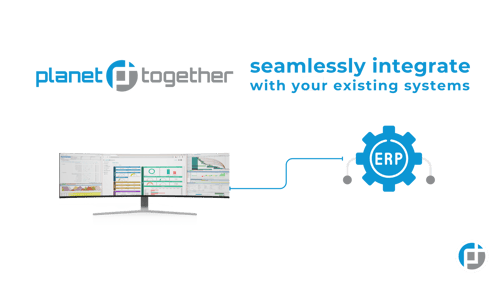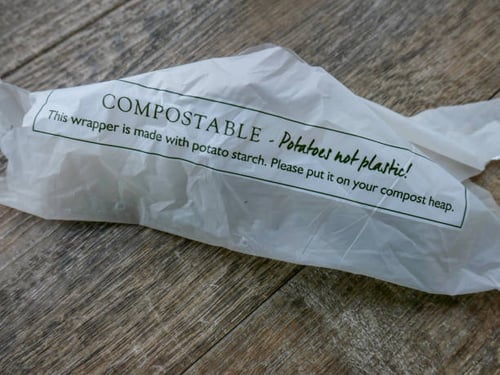Greener Choices, Smarter Plants: How Plant Managers Are Driving the Shift to Biodegradable and Compostable Packaging
The Sustainability Mandate in Packaging
As environmental concerns take center stage in consumer behavior and regulatory agendas, packaging and containers manufacturers are under increasing pressure to pivot toward sustainable solutions. At the core of this shift lies the adoption of biodegradable and compostable materials—an area where Plant Managers play a critical role. These material innovations not only meet ecological demands but also offer avenues for operational differentiation and competitive advantage.
However, embracing these changes isn’t just a matter of swapping one material for another. It involves rethinking production processes, supply chain coordination, quality assurance, and compliance. This is where advanced planning and scheduling (APS) systems such as PlanetTogether, integrated with enterprise resource planning platforms like SAP, Oracle, Microsoft, Kinaxis, or Aveva, become indispensable.

The Rise of Biodegradable and Compostable Materials in Packaging
Packaging waste has long been a major contributor to global pollution, with plastics being especially problematic. In response, the packaging industry is shifting toward sustainable alternatives such as:
Polylactic acid (PLA) derived from corn starch
Pulp-based packaging for food and consumer goods
Cellulose films used in flexible packaging
Starch blends and seaweed-based polymers
These materials degrade under industrial composting conditions or naturally over time, minimizing landfill accumulation and ocean contamination. But their introduction introduces complexities in manufacturing environments—changes in material behavior, shelf life, sealing requirements, and more.
Challenges for Plant Managers in Transitioning to Green Materials
Plant Managers face several hurdles when integrating biodegradable and compostable packaging materials:
Production Compatibility: Traditional machinery may need retrofitting or recalibration to handle new materials without compromising speed or product integrity.
Material Variability: Biodegradable materials can behave differently depending on humidity, temperature, and storage—factors that must be tightly controlled.
Quality Control: Ensuring the same level of durability and shelf-life requires rethinking the parameters of product testing and inspection.
Cost Pressures: Sustainable materials often cost more and may require investment in new tooling or training.
Supply Chain Coordination: Ensuring a stable supply of biodegradable materials means collaborating closely with suppliers and aligning inventory levels.
These complexities call for agile decision-making and advanced visibility into production flows—something that manual planning methods or siloed systems struggle to deliver.

The Role of APS and ERP Integration in Supporting the Transition
To successfully manage this material transformation, many leading facilities are leveraging PlanetTogether APS, integrated with ERP platforms like SAP, Oracle, Microsoft, Kinaxis, or Aveva. These integrations deliver a centralized and responsive planning environment that allows Plant Managers to:
Improve Production Planning Flexibility
Biodegradable materials often have different run speeds, curing times, or temperature tolerances. With PlanetTogether, Plant Managers can model these production variances and simulate scenarios to identify the most efficient setup. When integrated with ERP systems, this ensures that planning decisions align with broader supply chain and financial realities.
Optimize Changeovers and Reduce Waste
Changeovers between traditional and compostable materials can be time-consuming and lead to high scrap rates. APS tools help minimize these impacts by sequencing production in ways that reduce downtime and material loss. Integration with ERP systems ensures synchronized updates across procurement, inventory, and warehouse management.
Strengthen Supply Chain Visibility
Compostable and biodegradable raw materials may have shorter shelf lives or limited suppliers. By integrating APS with platforms like Kinaxis or SAP, Plant Managers gain end-to-end visibility into inventory levels, lead times, and vendor performance. This makes it easier to adapt quickly to material shortages or quality issues.
Support Compliance and Traceability
Environmental regulations require traceability of materials and processes. Integration between PlanetTogether and ERP platforms ensures that every step—from raw material receipt to finished goods—is documented, traceable, and audit-ready. This simplifies sustainability reporting and enhances customer trust.
Aligning Sustainability with Performance Metrics
Switching to green materials shouldn’t come at the expense of operational KPIs. In fact, many facilities are discovering that smart planning tools enable them to maintain or even improve:
OEE (Overall Equipment Effectiveness): Advanced planning reduces unplanned downtime and ensures optimal utilization of machines.
Order Fulfillment Rates: Real-time visibility into scheduling and material availability minimizes the risk of late shipments.
Scrap and Rework Costs: Simulation modeling helps prevent production errors when testing new biodegradable inputs.
Energy Efficiency: Better scheduling leads to leaner production runs, lowering energy consumption and carbon footprint.
With the right planning environment, Plant Managers can shift the narrative from sustainability as a cost to sustainability as a driver of operational excellence.

Preparing the Workforce for the Transition
Sustainable manufacturing is not just about materials and machines—it’s also about people. Plant Managers must guide their teams through the change by:
Offering Training: Educate operators and quality inspectors on how biodegradable materials behave differently on the line.
Fostering Innovation: Encourage line leaders to suggest process tweaks or machine upgrades that support material flexibility.
Enabling Transparency: Use integrated dashboards and APS reports to keep all departments aligned and informed.
PlanetTogether’s intuitive user interface and real-time collaboration tools support this transformation by making planning data accessible across departments.
The push toward biodegradable and compostable packaging is redefining how packaging and containers manufacturing operates. Plant Managers are no longer just operations leaders—they are sustainability champions and technology integrators. By embracing tools like PlanetTogether, especially when integrated with ERP systems such as SAP, Oracle, Microsoft, Kinaxis, or Aveva, Plant Managers can orchestrate a smart, scalable, and sustainable transition.
The road to green packaging isn’t without its bumps, but with the right tools and mindset, it becomes a strategic advantage rather than an operational hurdle.
Are you ready to take your manufacturing operations to the next level? Contact us today to learn more about how PlanetTogether can help you achieve your goals and drive success in your industry.
Topics: PlanetTogether Software, Integrating PlanetTogether, Packaging Manufacturing, Improve Production Planning Flexibility, Optimize Changeovers and Reduce Waste, Strengthen Supply Chain Visibility, Support Compliance and Traceability





















LEAVE A COMMENT